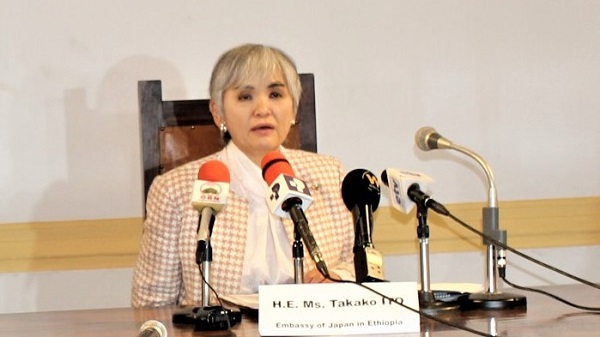
On 12 July, an Exchange of Notes for the “Food Assistance Program” was signed between Ms. Takako Ito, Ambassador Extraordinary and Plenipotentiary of Japan to Ethiopia, and Mr. Ahmed Shide, Minister of Finance of Ethiopia. The grant aid is worth approximately USD 3.5 million, equivalent to ETB 180 million.
Through this grant aid, around 2,250 tons of Japanese rice will be provided to Ethiopia, in order to combat food insecurity brought on by various factors including the droughts, the conflict in the north, drought and the extremely high number of internally displaced people (IDPs) in the country. As a lot of rice consumption in Ethiopia has relied on imports recently, this grant aid will help Ethiopia not only to combat food insecurity, but also to reduce imports of such food items and contribute to saving foreign currency.
Access to food is a human right, therefore Japan has supported rice production in Ethiopia since 2015, as one of the main pillars of Japan’s assistance to the agricultural sector in Ethiopia. Japan has supported Ethiopia through the Food Assistance Program for two consecutive years.
The Government of Japan has been actively supporting the development of Ethiopia and contributing to the improvement of people’s lives through various schemes, particularly in the fields of infrastructure, agriculture, industry, education, and health. Japan will continue to support Ethiopia’s development efforts through various Japanese Assistance Projects, as well as through other modalities of assistance., per the press release from the Embassy of Japan in Addis Ababa on 12 July 2022.
Conflict and climatic shocks have been contributing to the elevated emergency needs and population displacement in Ethiopia, especially in recent years. According to the United Nations Office for the Coordination of Humanitarian Affairs (UNOCHA), 13 million people are need food assistance in northern Ethiopia’s 3 conflict-hit regions (8.1 million people at minimum affected by the drought and 4.5 million IDPs identified countrywide, per IOM Feb. 2022 report).
